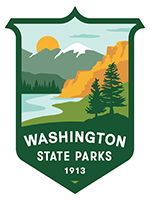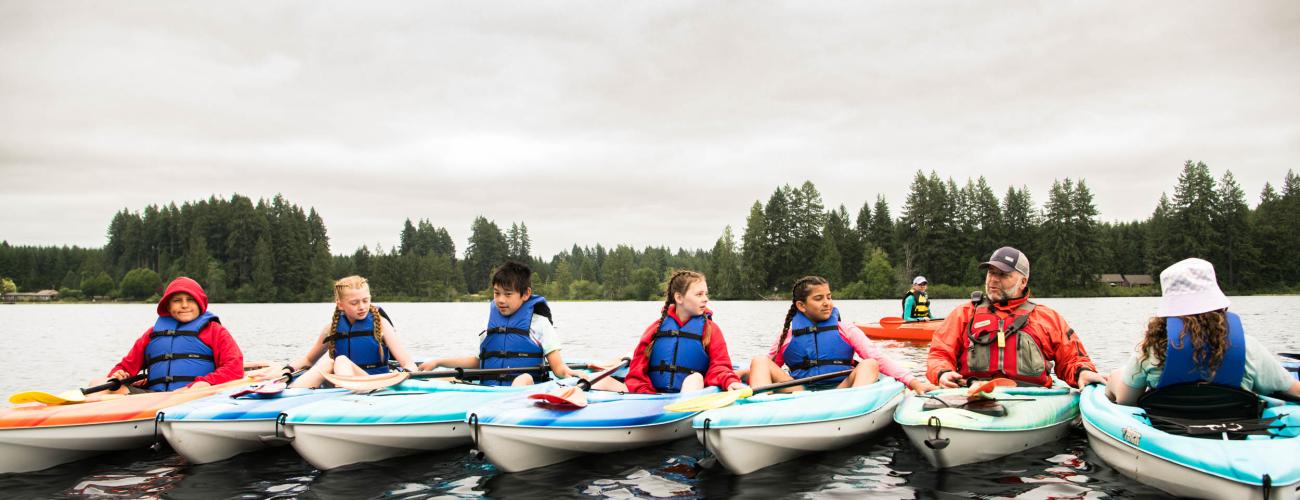Recent weather events have impacted or closed several parks, Sno-Parks and trails. Please "know before you go!" Check park alerts, road conditions and weather reports before visiting.
Boating and Water Safety Campaigns
The Boating Safety program mission is to reduce boating-related fatalities across the state. We help promote several safety campaigns each year. Members of the public are invited to support these campaigns using the tools and resources on this page.
A calendar for content topics is available here!
Prefer to get monthly material emailed to you? Reach out to ashley.seydel@parks.wa.gov to opt-in to our mailing list!
-
Cold Water Safety
-
Washington waterways stay cold year round, and these conditions can be dangerous! Awareness and life jacket wear are some of the best ways to stay safe from cold water shock.
Help Promote Cold Water Safety:
Talking Points and Social Media Content (PDF)
Learn more about cold water safety (Parks Webpage)
-
Spring Boater Education
-
A boating safety course provides critical knowledge and better prepares boaters and paddlers for potential risks while on the water. U.S. Coast Guard statistics show 80 percent of boating deaths occurred when the operator had not received formal boating safety education.
Help promote spring boater education:
Talking Points and Social Media Content (PDF)
Learn more about Boater Education (Parks Webpage)
-
Water Safety Day (May 15)
-
Water Safety Day, recognized by the State of Washington on May 15th recognizes it's first year in 2024. The Washington State Parks Recreational Boating Safety Program invites participants to support the message by sharing with your audience and planning events on Water Safety Day!
Help promote Water Safety Day:
-
National Safe Boating Week (May)
-
Held annually the week before Memorial Day, this event is coordinated by the National Safe Boating Council and its partners across the U.S. and Canada.
During this campaign, the State parks boating program reminds boaters to make responsible decisions a daily habit. We emphasis wearing a life jacket, never boating under the influence, carrying the right equipment, knowing navigational rules and more.
Help promote National Safe Boating Week:
Help share the message of boating safety! Write a blog, post on social media, publish an article and more. The Recreational Boating Safety Program provides a free toolkit for everyone to use!
Additional materials are provided by the Safe Boating Council at safeboatingcampaign.com/resources/.
-
Operation Dry Water
-
Operation Dry Water is a national enforcement campaign focused on bringing awareness and reducing the number of alcohol and drug-related boating accidents and fatalities.
As part of the yearly campaign, awareness patrols are conducted around the July forth, a holiday known for boating, alcohol use and an increase in boating accidents and fatalities.
The National Association of State Boating Law Administrators (NASBLA) coordinates operation dry water, in partnership with the Coast Guard, safety educators and local, state and federal law enforcement.
Help promote Operation Dry Water:
Help share the message to boat sober! Write a blog, post on social media, publish an article and more.
A toolkit with free materials is available by visiting nasbla.org/operationdrywater/enforcement/campaign-resources.
-
Paddle Safe Week (July)
-
Governor Inslee issued a proclamation declaring Paddle Safe Week. Our Boating program leads the statewide effort to create a culture of safety around paddlesports.
Paddle safe week is a public safety campaign reminding paddlers to wear a life jacket, never paddle under the influence, carry the right equipment, know navigational rules and more.
Help promote Paddle Safe Week:
Help share the message of paddle safety. Write a blog, create a video, post on social media, publish an article or share a message on your website. These resources can help:
-
Be Whale Wise
-
Be Whale Wise is a coordinated effort between the U.S. and Canada with multiple commercial, non-profit and environmental non-governmental organizations, law enforcement and state programs dedicated to educating the public and raising awareness within the boating community.
Vessel noise and traffic impact the survival of southern resident killer whales. These whales — also called orcas — are listed as endangered under the federal Endangered Species Act.
As a boater or paddler, you can do your part to protect whales and keep yourself safe by following Be Whale Wise regulations.
Help promote Be Whale Wise:
- Learn how you can keep the whales — and yourself— safe. Visit BeWhaleWise.org.
- Learn how to use the 'Whale Warning Flag' or get one of your own.
- Learn more about killer whale conservation and management from Washington Department of Fish and Wildlife.

